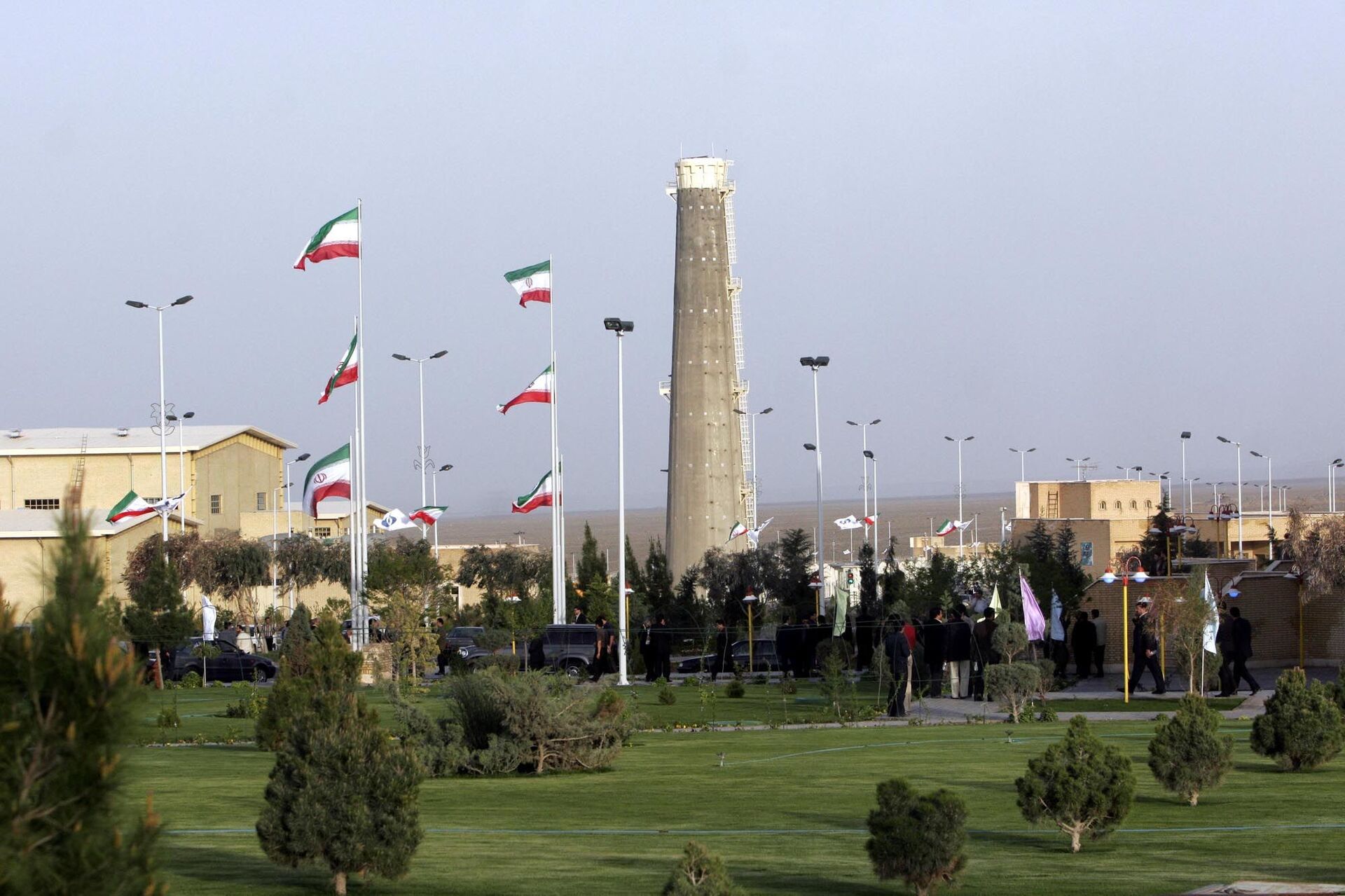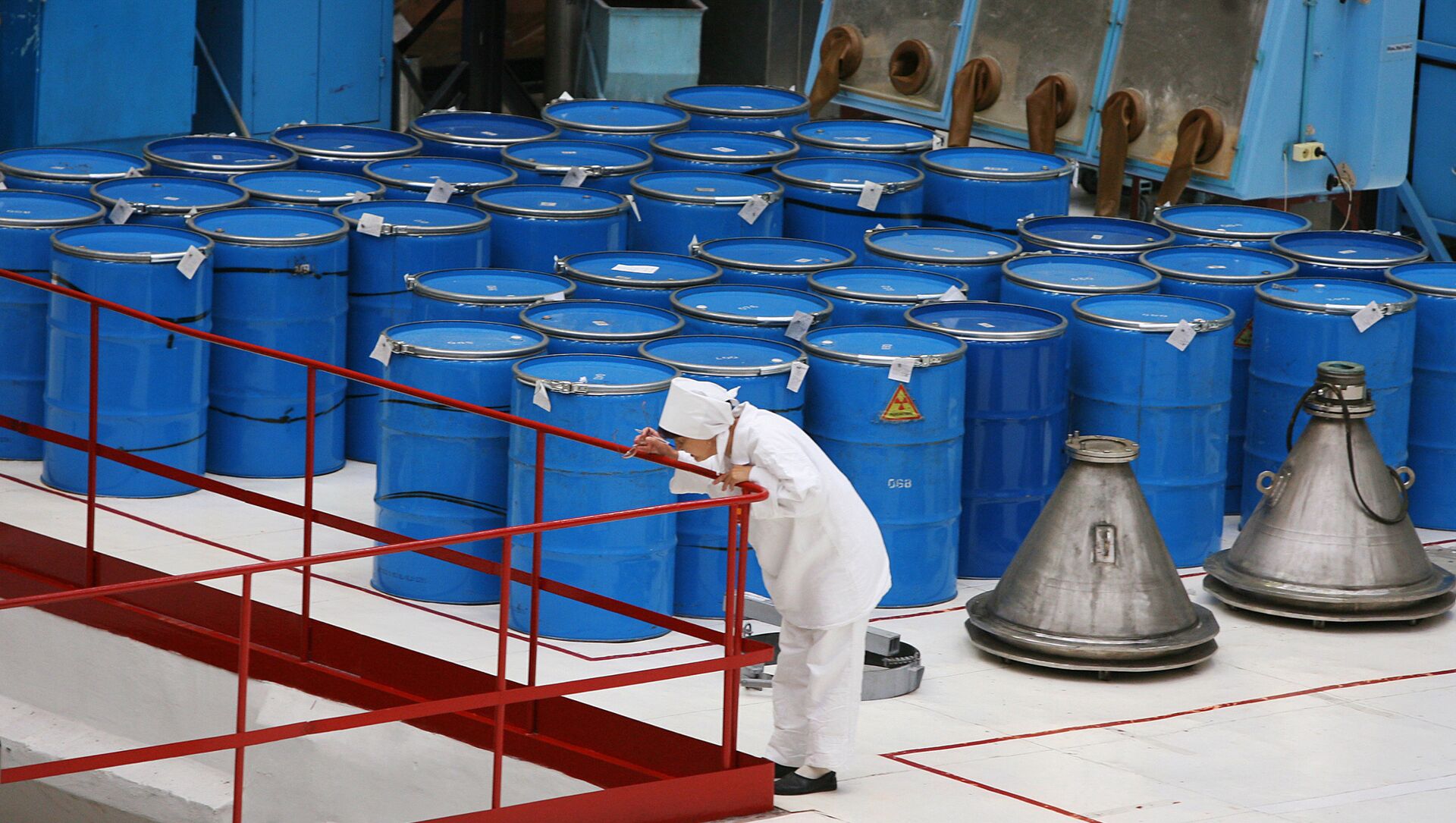Iran has informed the International Atomic Energy Association (IAEA) of its intent to install two more cascades of advanced IR-2m centrifuges in a move that will further enhance the quantity of the uranium it can produce, the agency said in a recent report.
“Iran indicated it plans to install two additional cascades of 174 IR-2m centrifuges at FEP to enrich ... up to 5% U-235. This will bring the total number of cascades of IR-2m centrifuges either planned, being installed, or operating in FEP to six,” the IAEA said in a report to member states obtained by Reuters on Wednesday.
The additional cascades will be installed at the Natanz Fuel Enrichment Plant (FEP) outside Tehran. The facility suffered an explosion last July that Iranian authorities said was likely the result of sabotage.

The installation will follow two other cascades already brought on line this year at Natanz that have increased Iran’s ability to refine uranium-238 into the more useful uranium-235. While in extremely high purities the radioactive material can be used as the basis for an atomic bomb, at low purity levels Iran is currently producing, a weapon “would not be practicable to design,” according to the Lawrence Livermore National Laboratory, the US research center responsible for designing many of the Pentagon’s nuclear weapons.
While the US and Israel have claimed Iran is close to building a nuclear weapon, Iranian Supreme Leader Ayatollah Ali Khamenei has made clear the country has a religious objection to the weapons and is not pursuing a bomb.
Iran announced its intent to enhance its refining abilities after the Majlis passed a law in December requiring a steady departure from the country’s obligations under the 2015 Joint Comprehensive Plan of Action (JCPOA). The US withdrew from the eight-party deal in 2018 on false claims that Iran had violated the deal; however, the deal lived on as no other party agreed with the Trump administration’s claims. The deal saw economic sanctions against Iran lowered in exchange for it accepting strict limitations on uranium refining - limitations it has progressively ignored since the US reimposed the sanctions.
In early January, Ali Akbar Salehi, the head of the Atomic Energy Organization of Iran (AEOI), said the country would be installing one thousand of the IR-2m centrifuges, dramatically increasing Iran’s enrichment rate from 8 or 9 kilograms per month to 120 kilograms. He also said the maximum purity would increase to 20% U-235 thanks to two cascades of IR6 centrifuges now installed at Fordow Fuel Enrichment plant, an underground facility to protect it from a potential Israeli airstrike.
Now that US President Joe Biden is in office, the stage would seem set for the US to return to the deal and Iran to return to compliance; instead, the two nations seem caught in a “no you first” mentality. Meanwhile, the clock is ticking on the Majlis’ “Strategic Action to Lift Sanctions” law. Under the law, on February 21, the next step is to bar further IAEA inspectors from Iran if the US has not returned to JCPOA compliance.
The US Department of State called on Iran on Wednesday to reverse those plans.




